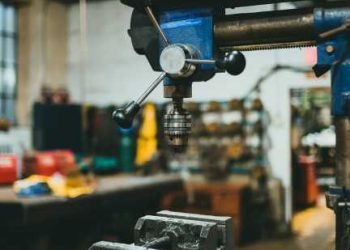The automotive sector has long been a pillar of the manufacturing industry. The production and assembly of automobiles require a complex and highly efficient process, involving numerous components and technologies. This blog post will delve into the importance of manufacturing in the automotive sector and its impact on the industry as a whole.
Manufacturing in the automotive sector is a vital component of the global economy. It encompasses a wide range of activities, including the design, development, production, and assembly of vehicles. From passenger cars to commercial trucks, manufacturing plays a crucial role in delivering reliable and innovative modes of transportation to consumers.
One of the key reasons why manufacturing is so important in the automotive sector is the sheer scale of demand. The global automotive industry is expanding rapidly, with millions of vehicles being produced and sold each year. As a result, manufacturers must possess the capabilities to meet this high demand efficiently and effectively.
Efficiency is particularly crucial in automotive manufacturing due to the need for cost competitiveness. Vehicle production involves numerous intricate processes, including stamping, welding, painting, and assembly. Automakers must optimize these processes to reduce costs and ensure competitive prices for their vehicles. This requires continuous improvement, innovation, and the adoption of advanced manufacturing techniques.
In recent years, the automotive sector has witnessed a significant transformation due to technological advancements. Manufacturing processes are increasingly becoming automated and digitized, allowing for greater precision, higher productivity, and improved quality control. Technologies like robotics, artificial intelligence, and the Internet of Things (IoT) are revolutionizing the automotive manufacturing space.
Robotics, in particular, has been a game-changer in automotive manufacturing. Robots can perform repetitive tasks with utmost precision, ensuring consistent quality and reducing human error. They also contribute to improved worker safety, as they can handle hazardous or physically demanding activities. Additionally, robotics helps in optimizing production lines and achieving higher levels of productivity.
Another significant development in automotive manufacturing is the concept of smart factories. Smart factories leverage the power of connectivity and data analytics to enhance production processes. IoT devices and sensors can collect real-time data from various points in the manufacturing process, allowing for better monitoring, analysis, and decision-making. This data-driven approach enables manufacturers to identify bottlenecks, reduce downtime, and increase overall efficiency.
Furthermore, the automotive sector is witnessing a shift towards sustainable manufacturing practices. As environmental concerns become more pronounced, automakers are focusing on reducing their carbon footprint and promoting sustainability. This includes adopting eco-friendly materials, optimizing energy consumption, and implementing recycling and waste management programs. Sustainable manufacturing in the automotive sector not only benefits the environment but also enhances brand reputation and helps meet regulatory requirements.
The manufacturing sector in the automotive industry also serves as a major source of employment. It provides job opportunities for millions of people worldwide, ranging from engineers and technicians to assembly line workers. The manufacturing process involves a wide range of skills, from design and engineering to production and quality control. The sector not only contributes to economic growth but also plays a crucial role in creating and sustaining a skilled workforce.
In conclusion, manufacturing in the automotive sector is of paramount importance for the global economy and the industry itself. The sector must fulfill the growing demand for vehicles while maintaining cost competitiveness and adopting technological advancements. With the rise of automation, digitization, and sustainability, the future of automotive manufacturing is poised to be innovative, efficient, and environmentally conscious. It will continue to drive economic growth, create employment opportunities, and provide consumers with safe and reliable vehicles.












